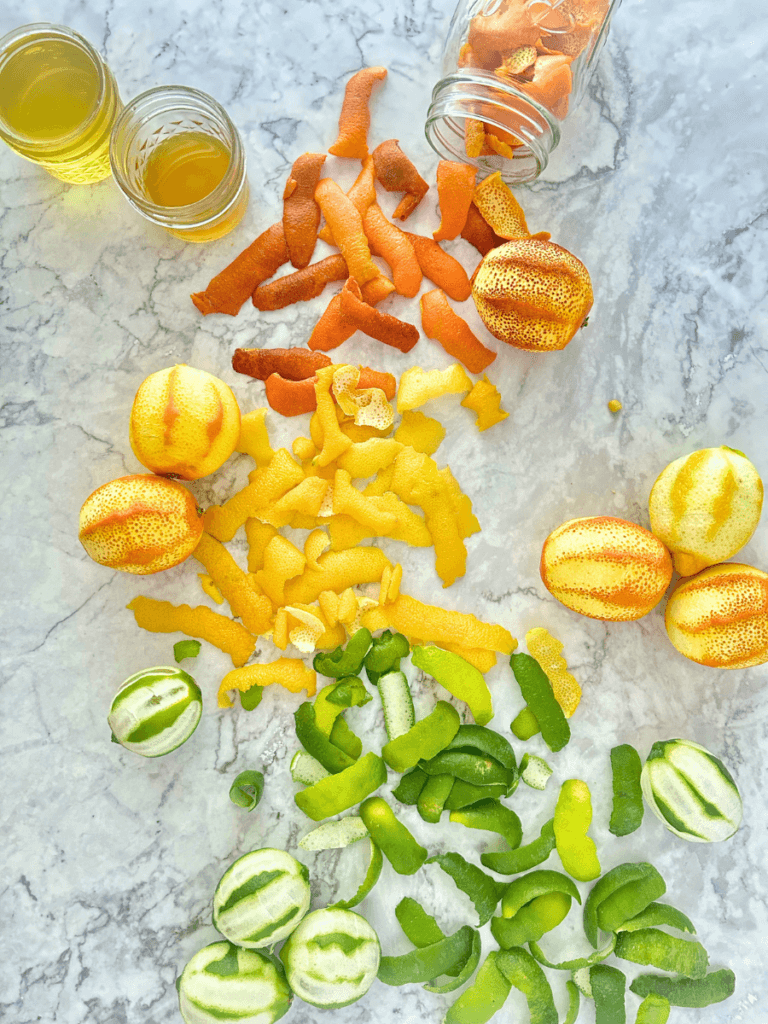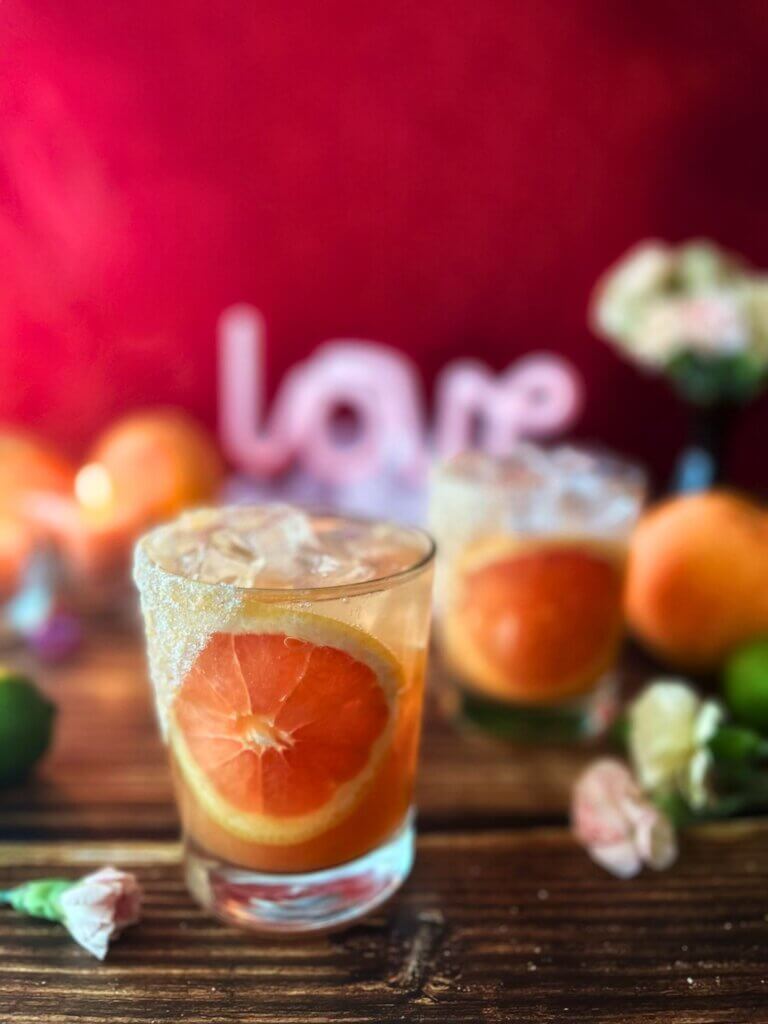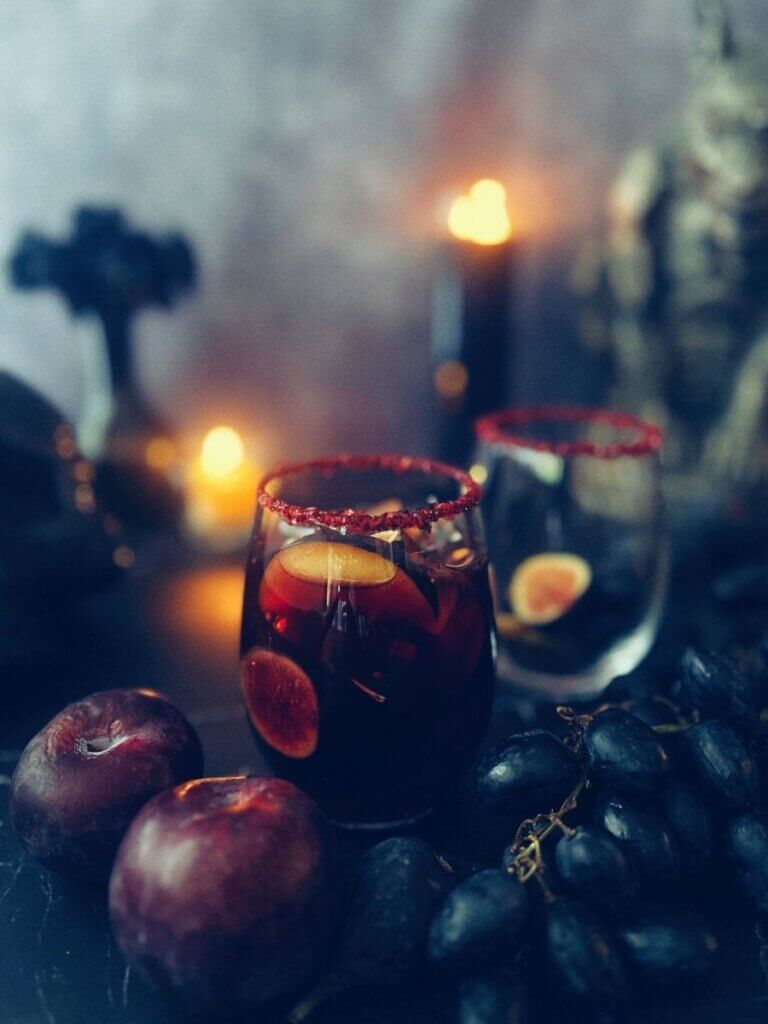The History of Oleo Saccharum
Oleo saccharum is a fragrant syrup made by using sugar to extract the natural oils found in citrus rinds; it means “oil sugar” in Latin. Used in punches since the first recorded mention in 1670 and in mixed drinks as far back as the 1800s, oleo will elevate your average lemonade to something otherworldly.
All kinds of citrus can be used, but each yields a slightly different quantity, with lemons, grapefruit and oranges producing the most, and limes and tangerines making less. Feel free to combine your citrus to make different flavor combinations. And remember that a little oleo saccharum goes a long way, so don’t let the yield disappoint you – especially when you consider how easy it is to make.
In addition to using it in mocktails, citrus-ades and teas, oleo saccharum can be used as pancake syrup, drizzled over berries and ice cream or added to marinades, glazes and salad dressings. We use orange oleo in all our non-alcoholic recipes that call for Cointreau, Grand Marnier or Triple Sec.
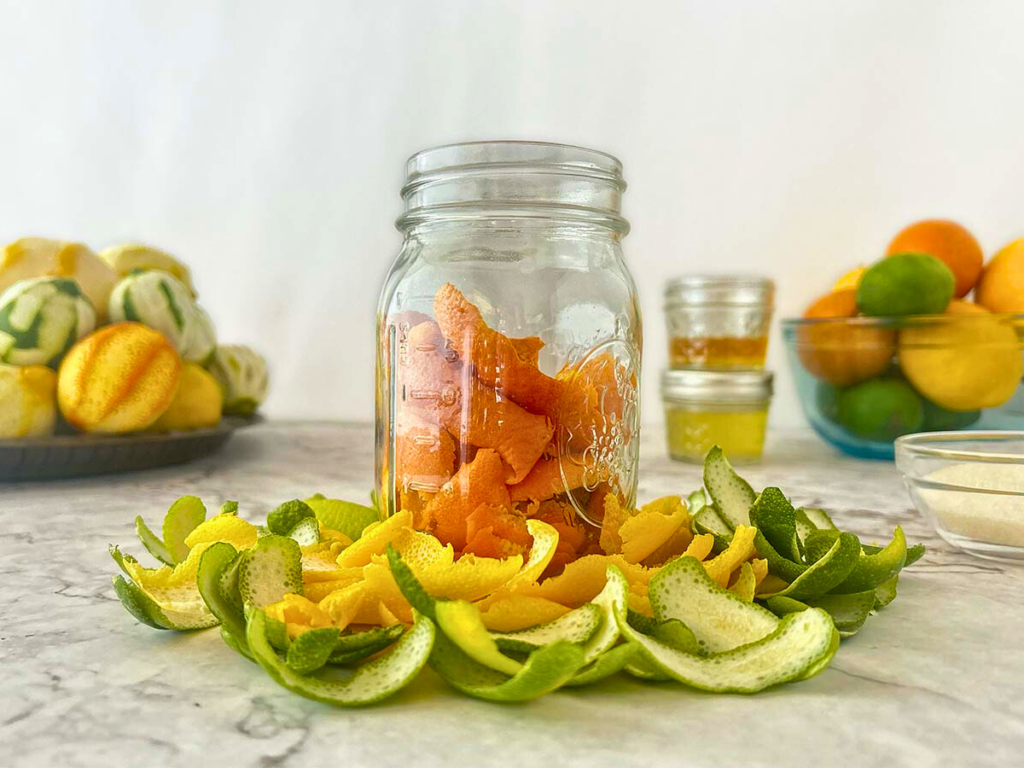
Why Use Ordinary Sugar?
As much as we don’t love refined sugar around here, it is necessary in this recipe because it accomplishes what honey cannot. Purchase unrefined, organic cane sugar if, like me, you refuse to allow the bleached stuff in your house.
Because it is granular, ordinary sugar helps to rupture the oil glands in the citrus rinds during maceration. This causes the essential oils to ooze out of the glands, where they spread out amongst the sugar crystals. Water is also pulled out of the peel via osmosis causing the sugar to dissolve and liquefy.
I read that superfine sugar works better than regular sugar because it dissolves more easily and yields more syrup when all is said and done, but I have only tried this recipe with ordinary organic cane sugar, so I can’t verify if this is true. Nonetheless, my disdain for white sugar led me to create refined sugar-free variations with both coconut sugar and citric acid, with varied results that I outline in the recipe notes.
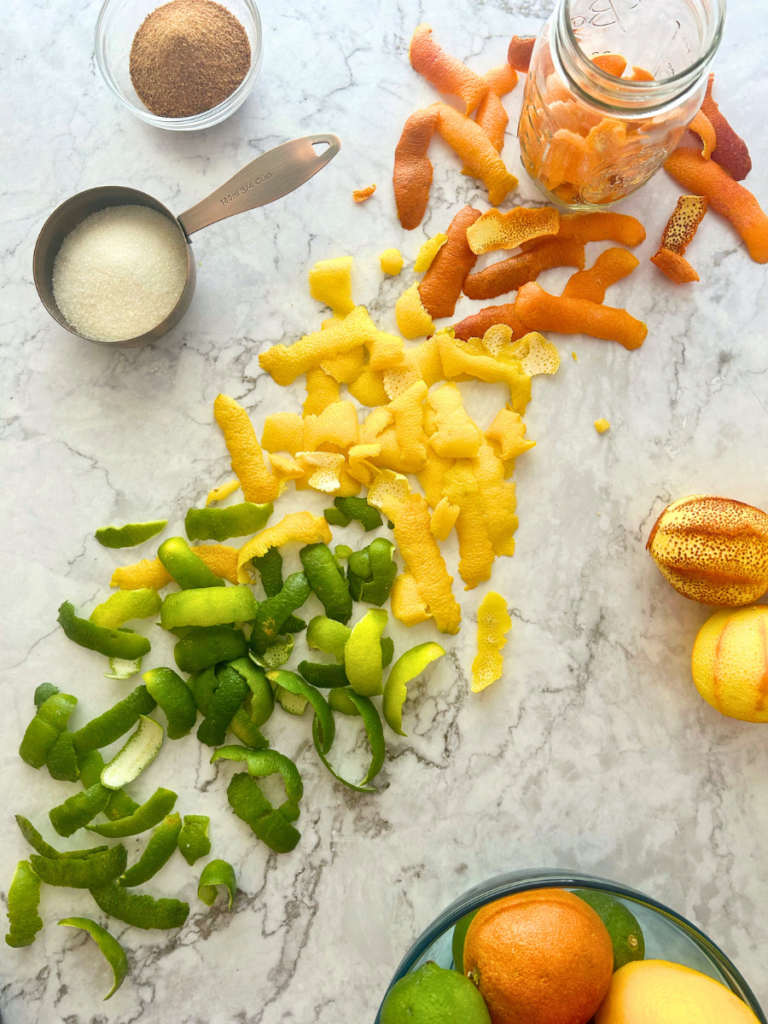
Magickal Properties of Oleo Saccharum
Your batch of oleo saccharum will bear the corresponding metaphysical properties of whatever citrus you select, like the healing and protective energy of lime or the purifying power of lemon. Oranges bring happiness and luck, grapefruit enhances psychic abilities and tangerine promotes vitality. The sky’s the limit when crafting an intention for this recipe.
The most magickal aspect of this oleo saccharum recipe, in my opinion, is the fact that it makes use of something that would ordinarily go to waste. This small action, making use of all parts of earth’s bounty, demonstrates not only the resourcefulness of a modern witch, but also places us in a position of responsible stewardship to the planet we call home.
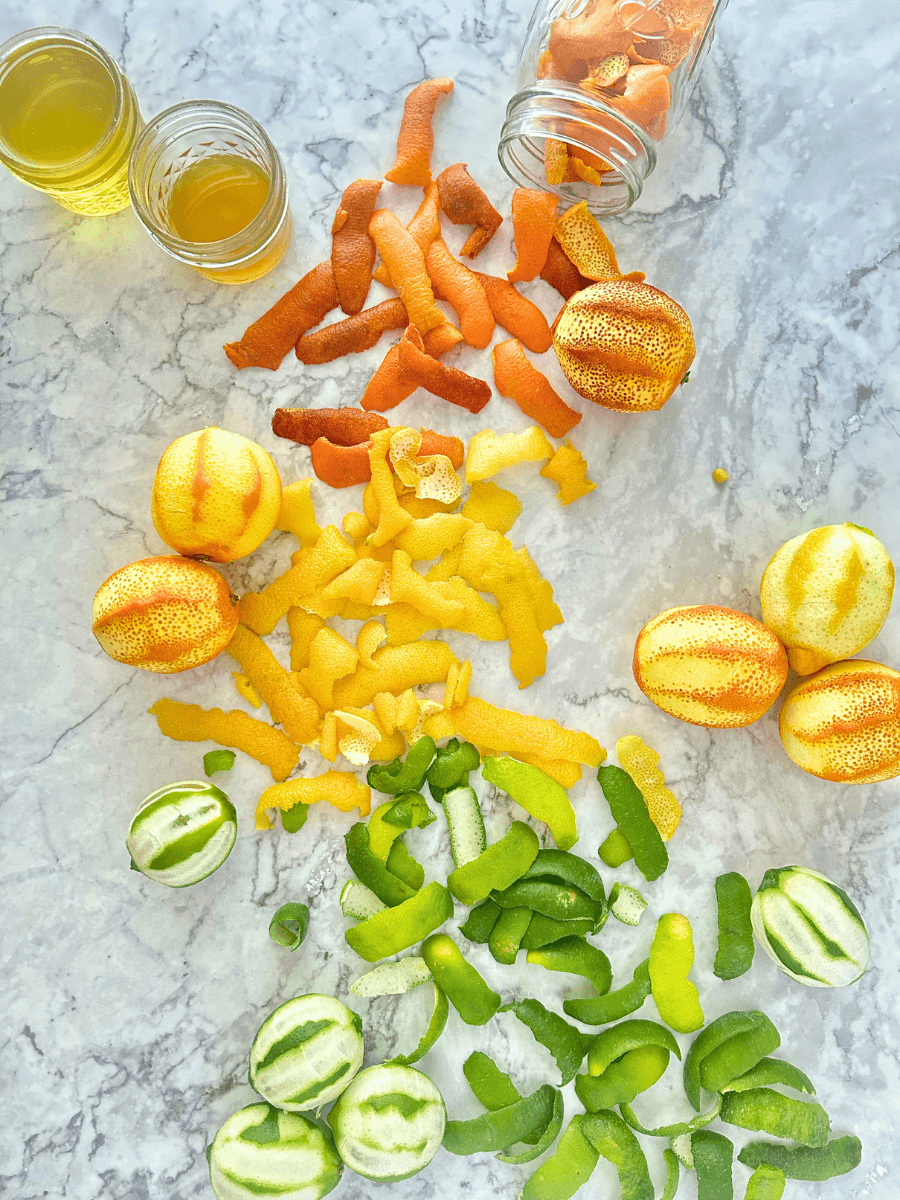
Oleo Saccharum (Refined Sugar-Free Variation)
Equipment
- kitchen scale optional, but recommended, or measuring cups
- non-reactive bowl or jar
Ingredients
- 1 cup citrus peel preferably from organic citrus
- ¼ cup organic cane sugar or coconut sugar (see citric acid variation below)
Instructions
- Wash your citrus, scrubbing gently if non-organic.
- Peel with a vegetable peeler, avoiding the white pith as much as possible. Place the peels in a non-reactive bowl.
- Gently mix in an equal amount of sugar, by weight, to the peels. A kitchen scale is best for determining this, but you can also eyeball it using the proportion of 1 cup of peels to ¼ c of sugar.
- Stir to coat the rinds with sugar. Let the mixture sit for 24 hours at room temperature, stirring every so often and pressing on the peels with a wooden spoon.
- After a day on your counter, strain the syrup through a sieve, pressing on the solids to extract as much syrup as possible. Store in a jar in the refrigerator.

